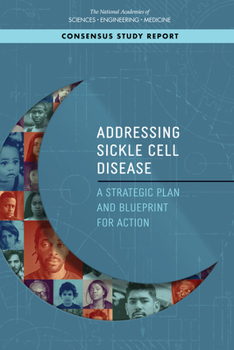Addressing Sickle Cell Disease: A Strategic Plan and Blueprint for Action
Sickle cell disease (SCD) is a genetic condition that affects approximately 100,000 people in the United States and millions more globally. Individuals with SCD endure the psychological and physiological toll of repetitive pain as well as side effects from the pain treatments they undergo. Some adults with SCD report reluctance to use health care services, unless as a last resort, due to the racism and discrimination they face in the health care system. Additionally, many aspects of SCD are inadequately studied, understood, and addressed.
Addressing Sickle Cell Disease examines the epidemiology, health outcomes, genetic implications, and societal factors associated with SCD and sickle cell trait (SCT). This report explores the current guidelines and best practices for the care of patients with SCD and recommends priorities for programs, policies, and research. It also discusses limitations and opportunities for developing national SCD patient registries and surveillance systems, barriers in the healthcare sector associated with SCD and SCT, and the role of patient advocacy and community engagement groups.





